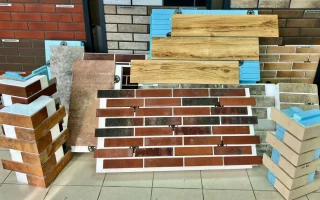When you have a home project on your hands, from minor faucet fixes to major kitchen renovations, it can feel daunting. The decision between doing it yourself to potentially save a few bucks or hiring out a professional is an ever-present consideration for most homeowners. There’s no one-size-fits all answer for this dilemma. The best choice varies based on your budget, the amount of time you can put into the project, and your level of skill with handyman work.
Potential Benefits of DIY
The main appeal of DIY projects often lies in the prospective for cost savings by avoiding labor expenses. Beyond the financial benefit, completing a project with your own two hands can bring a sense of pride and accomplishment for your hard work. DIY also offers increased control over project schedule and material selection, allowing you to work at your own pace and choose products that fit your preferences. For easier tasks like installing a shelf or simple yard maintenance, DIY can be both fulfilling and budget-friendly. The abundance of online resources and how-to videos further empowers homeowners to tackle projects that might initially seem challenging.
Expectation vs. Reality
While DIY seems to promise serious advantages, the reality can vary. Many home projects require skill and tools that most homeowners don’t have. The result of inexperience can be a less-than-ideal finish, costly mistakes, and even safety hazards, particularly with systems like plumbing and electrical. Time is also a significant constraint, as a professional’s ability to get the job done in a matter of days can be drastically different than the often-extended timeline a DIYer needs, especially when learning and problem-solving along the way are involved. Moreover, the responsibility to acquire all the tools and materials for the job falls on the DIYer, and the expense of equipment for a one-time use can negate initial cost savings.
Advantages of Expert Help
Choosing to hire a professional provides capability and efficiency that DIY typically lacks. Their years of experience and training along with owning the necessary tools enable them to finish projects quickly and correctly, following building codes and safety rules to avoid fines or issues down the road. This saves you considerable time and the worry of making mistakes.
Although you’ll pay more upfront for labor, the guarantee of quality work and fewer future problems often make the cost worthwhile. When facing complicated jobs like electrical rewiring, structural fixes, or large-scale renovations, a qualified professional is usually the best choice. These contractors also often take care of trickier aspects like getting the correct permits and inspections that can confuse the average DIYer.
Accounting for Waste Removal
Home projects invariably produce waste, and both DIYers and professionals need a debris removal strategy. A home dumpster rental can offer benefits, providing an efficient way to manage waste on your property. Often, renting your own dumpster is cheaper than the waste removal fees charged by professionals, giving DIYers greater savings. While the professional will typically handle waste disposal, consider how the added cost will affect your budget compared to a potentially cheaper dumpster rental.
Conclusion
In the end, deciding to DIY or hire a pro comes down to a few considerations: How complex and extensive is the project? How skilled and experienced are you? Do you have the necessary time to do it right? How much can you really spend, factoring in equipment and potential errors if you DIY? Are there any safety risks for an amateur? Take the time to honestly answer these, and you’ll make the best choice for a safe and optimal outcome.




